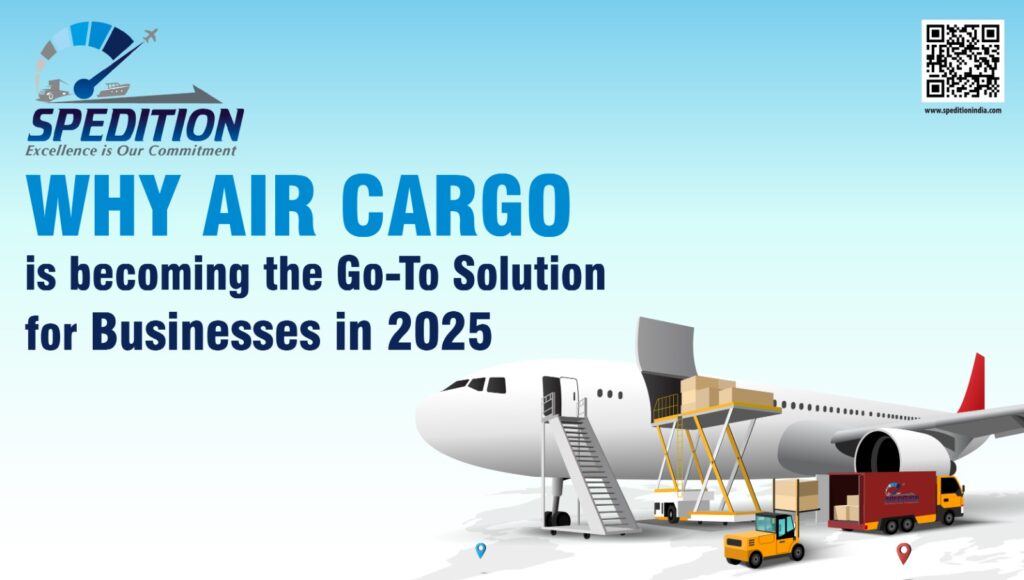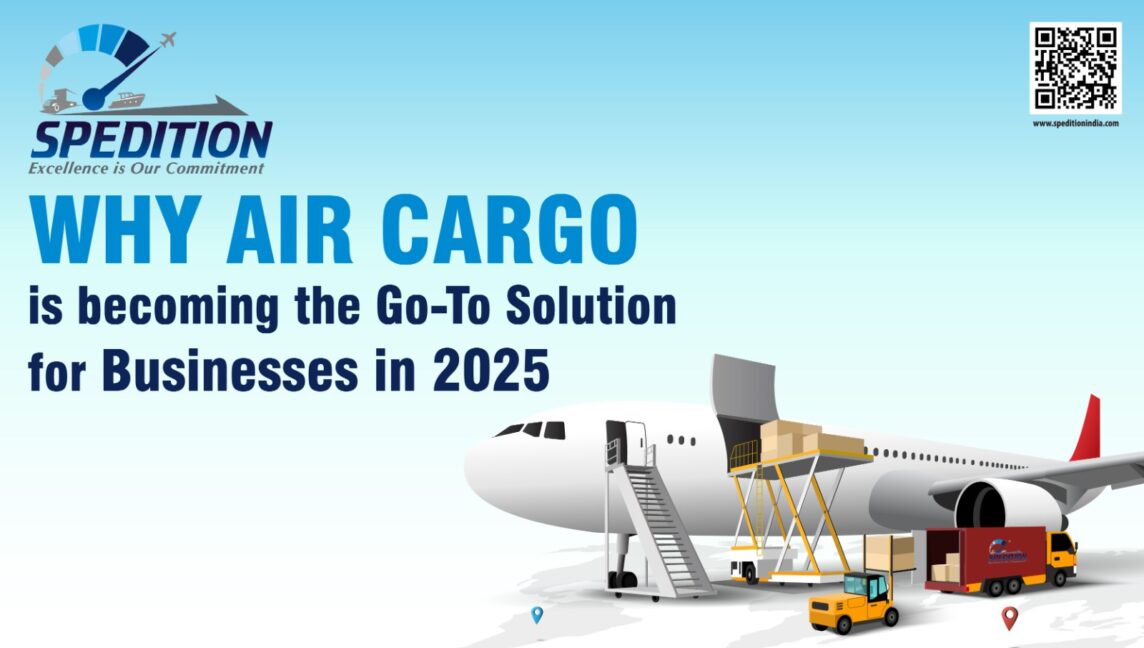 Introduction
Introduction
By 2025, in a world where fast-paced globalized enterprises has gained extreme pressure on timely delivery. The parlance of logistics solution selection is no more on the drawing board; it has become a critical perspective for survival in an environment defined by cut-throat competition. Enter air cargo, the logistics game-changer that’s redefining how businesses approach their supply chain.
Speed, precision, and visibility in logistics today are regarded as important by Spedition India. Hence, we are wholeheartedly committed to providing advanced air cargo services to help businesses accomplish the time-sensitive delivery requirements with utmost certainty and efficiency.
Speed and Time-Sensitivity: The Core Advantage of Air Cargo
The most defining advantage of air cargo logistics is its unmatched speed. When time is money, air freight becomes the preferred mode of transport for companies that cannot afford delays. Spedition India’s air cargo services are optimized for express delivery, enabling businesses to move goods across continents in a matter of hours, not weeks.
This is especially vital for:
- Industries with tight supply chains, such as automotive or electronics.
- Products with short life cycles, such as fashion and gadgets.
- Perishable goods, including pharmaceuticals and food.
Reduced lead times, better inventory turnover, and increased customer satisfaction are all benefits of incorporating air freight into a business’s operations that have a direct effect on profitability.
Global Reach with Consistency
Airlines retain access to some of the most remote and sought-after international destinations on set timetables Unlike road or sea freight, which can be affected by border delays, political disruptions, or traffic issues, air freight maintains consistency and punctuality.
Compare this to sea or land transport:
- Sea freight can take weeks and is subject to frequent disruption because of port congestion.
- Land freight delay due to terrain, weather, and regulations on borders.
For example, businesses in the electronics and technology sector are increasingly employing Spedition India’s air freight services to ship finished items and valuable components from Asia to North America or Europe, guaranteeing punctual delivery timeframes.
Reliability and Reduced Risk in Air Cargo
Additionally, it is the remarkable reliability and security offered by air cargo which would turn the air freight into a preferred option in 2025. Due to stringent security measures combined with reduced handling of cargo, the chances for damage, theft, or delay in traveling by air would be minimal as compared to other modes of transportation.
Apart from that, air freight has its improved tracking features and enables its users to monitor their consignments in real time. At Spedition India, we have also availed ourselves of real-time tracking systems and AI-enabled monitoring devices at every travel stage. This level of transparency promotes confidence and reliability, especially in the case of expensive or delicate commodities.
Case Studies: Industries Embracing Air Cargo in 2025
Many industries are rapidly turning to air cargo logistics as their primary delivery channel. Let’s look at how different sectors are benefiting from Spedition India’s customized air freight solutions:
- Pharmaceutical Sector: With increasing global demand for time-critical vaccine and medicine deliveries, air cargo provides the temperature-controlled, rapid transport essential for patient safety.
- Fashion and Retail: Trend-driven retailers rely on air freight to restock fast-moving items across global outlets—keeping shelves full and customers satisfied.
- Automotive Industry: One little component delay has the potential to stop a whole production line. To guarantee smooth operations, large manufacturers rely on Spedition India’s urgent parts delivery service.
Customized air cargo tactics that guarantee accuracy, timeliness, and performance are advantageous to each of these industries.
Technology Enhancing the Air Cargo Experience
The air cargo industry is no longer just about speed—it’s about smart logistics. In 2025, technology is transforming every touchpoint of air freight, making it more efficient, responsive, and transparent.
- AI and IoT are enabling predictive maintenance, smart routing, and real-time cargo updates.
- Automation is reducing manual errors in booking, cargo handling, and documentation.
- Cloud-based platforms are simplifying booking, customs processing, and compliance management.
At Spedition India, we’ve invested heavily in next-gen technologies to offer seamless digital experiences. From automated cargo tracking to paperless billing, our solutions are designed to make air freight logistics smooth, scalable, and future-ready.
Sustainability Air cargo Logistics
A common misconception is that air cargo is inherently eco-unfriendly. While air transport does have a higher carbon footprint per unit than sea freight, the industry is rapidly evolving with green logistics initiatives.
Some emerging solutions include:
- Electric aircraft and drones for regional cargo.
- Biofuel usage in cargo planes.
- Carbon offset programs to neutralize emissions.
At Spedition India, we believe in combining speed with sustainability. Our logistics programs are improving to reduce environmental impact without compromising delivery timelines. We also guide clients in choosing eco-smart routes and consolidated shipments to minimize emissions per package.
Scalability and Flexibility for Modern Businesses
Whether you’re a startup shipping product samples or a global enterprise managing bulk exports, air cargo offers unmatched flexibility. From small parcels to large-scale shipments, air freight adapts to your needs.
Spedition India’s air cargo services include:
- Express air freight for next-day delivery.
- Priority services for high-urgency shipments.
- Consolidated cargo solutions for cost-effective delivery without compromising speed.
Our modular approach makes air freight accessible, affordable, and adaptable—regardless of your business size or shipment volume.
Conclusion
Air freight is undoubtedly becoming the most practical logistics option for companies that value speed, accuracy, and worldwide reach as 2025 draws to a close. Air Cargo is now a need rather than a luxury due to short delivery windows, changing market needs, and growing customer expectations.
But having a logistics partner that can provide responsive, tailored solutions and who understands your particular needs is what really makes a difference. Spedition India can help with that.
We provide smart, scalable, and sustainable logistics services that will give your company the competitive edge it needs in 2025 and beyond, in addition to air freight.
Choose Spedition India—your go-to air cargo partner for the future.





